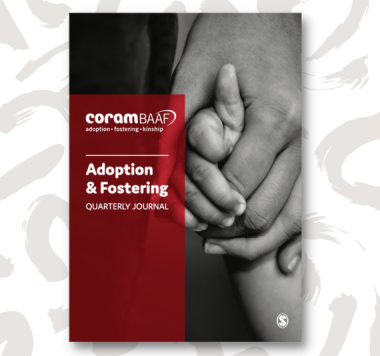What is neurodiversity?
The way we think, act, process information, and communicate varies depending on our brains. Many embrace the word neurodiversity as a term to encompass a range of thinking styles, including Dyslexia, DCD (Dyspraxia), Dyscalculia, Autism, and ADHD. Regardless of specific labels, neurodiversity emphasises acknowledging and embracing diverse modes of thought.
Our blogs
Disability in the care system: the struggle for young people to access diagnosis and support
Growing up in care with multiple disabilities, Susan faced significant challenges, including a lack of proper support and understanding from the care system. Despite these obstacles, a late autism diagnosis at 21 enabled her to pursue higher education and advocate for systemic changes to better support disabled children in care.
Read moreNeurodiversity Celebration Week: promoting acceptance and understanding
In our increasingly diverse world, the concept of neurodiversity is gaining recognition and appreciation. Coined by Judy Singer in 1999, neurodiversity encompasses a wide range of cognitive variations, including conditions like autism, ADHD, dyslexia, dyspraxia, dyscalculia, and Tourette syndrome. Rather than seeing these differences as challenges neurodiversity encourages us to view them as unique strengths that enrich our collective human experience.
Read moreMeeting the needs of neurodivergent children and young people
The term neurodiversity enables us to talk about difference in a strength-based way thereby focusing on what makes neurodivergent people unique. Dr Gemma North outlines the importance of acknowledging and supporting care experienced children and young people.
Read the blogOur recordings
Neurodiversity in the workplace
Dr Gemma North explores neurodiversity in the context of social work employment. A lack of awareness and about neurodiversity in social work settings can lead to insufficient support for neurodivergent employees. Knowledge and awareness about aspects of neurodiversity including Autism, Tourette’s Syndrome, Dyslexia, Dyscalculia and ADHD must increase in order for workplaces to be meaningfully inclusive.
Working with you to meet your needs
Find out more about our training course about neurodiversity. All our courses can be delivered for your organisation at your chosen work location in person or online. Find out more about our commissioned training.
Neurodiversity in adoption, fostering and kinship care
This course acknowledges and celebrates difference. It situates neurodiversity as a natural variation to ‘the norm’ rather than as something that is disordered, dysfunctional or deficient. The aim of the course is for participants to increase their knowledge and develop confidence in discussing some aspects of neurodiversity including Autism, Dyslexia and ADHD.
All our courses can be delivered for your organisation at your chosen work location in person (England, Northern Ireland and Wales) or online (via Zoom or MS Teams).

Watch the recording from our Exploring Expertise
This session provided an overview of Fetal Alcohol Spectrum Disorder (FASD). It aimed to help fostering and adoption services by providing strategies and resources to assist those who are working with children or young people with a FASD diagnosis. Our presenters were Sandy and Martin Butcher, co-founders and co-chairs of the Hertfordshire FASD Support Network. Our Chair was Alice Sewell, trainer at NationalFASD.
Sign in to watchJournal articles on neurodiversity

Ascertaining risk of fetal alcohol spectrum disorder at initial health assessments for children in care
Fetal alcohol spectrum disorder (FASD) from prenatal alcohol exposure poses risks for looked after children. Timely diagnosis is crucial, and an audit in Brighton and Hove assessed the documentation of alcohol use and recorded information about the risk of developmental problems in initial health assessments from April 2021 to April 2022. Read more in 'Ascertaining risk of fetal alcohol spectrum disorder at initial health assessments for children in care' by Layla Beckett, Michelle Bond.
Sign in to read moreThe following articles from the Adoption & Fostering Journal archive record the developments and challenges of neurodivergence in the child care sector over the last decade:
- Heady, N., Watkins, A., John, A., & Hutchings, H. (2022). The challenges that social care services face in relation to looked after children with neurodevelopmental disorders: A unique insight from a social worker perspective.
- Balcaen, L., Santos, R., Roger, K., & Mignone, J. (2021). Families with fetal alcohol spectrum disorders: Exploring adoptive parents’ experiences of family well-being.
Sign in to your website account to access:
- Gerin, M. I., Hanson, E., Viding, E., & McCrory, E. J. (2019). A review of childhood maltreatment, latent vulnerability and the brain: implications for clinical practice and prevention.
- (Health Notes, Volume 39 Issue 3, October 2015). The problems of making a diagnosis of FAS/FASD in the neonatal period.
- Woolgar, M. (2013). The practical implications of the emerging findings in the neurobiology of maltreatment for looked after and adopted children: recognising the diversity of outcomes.
